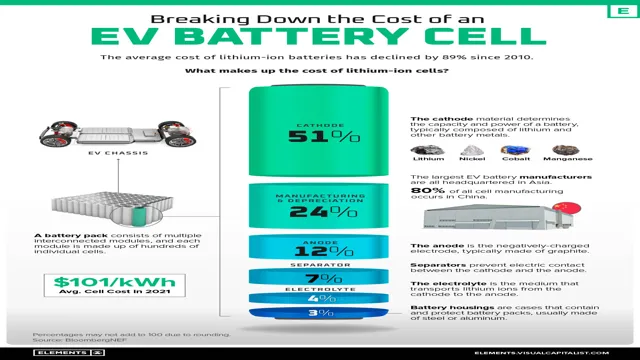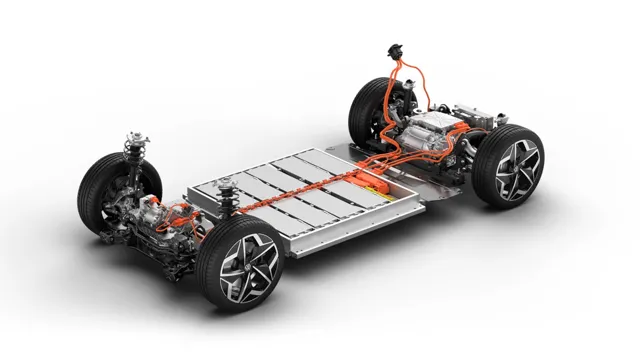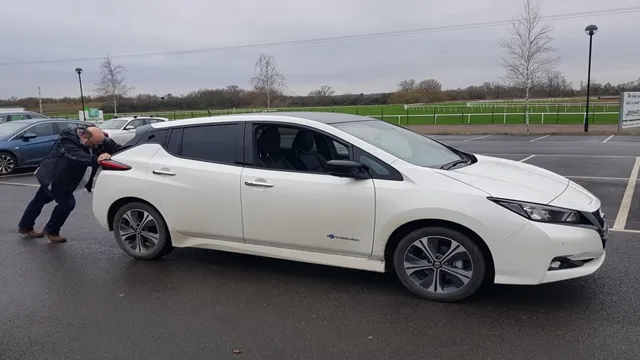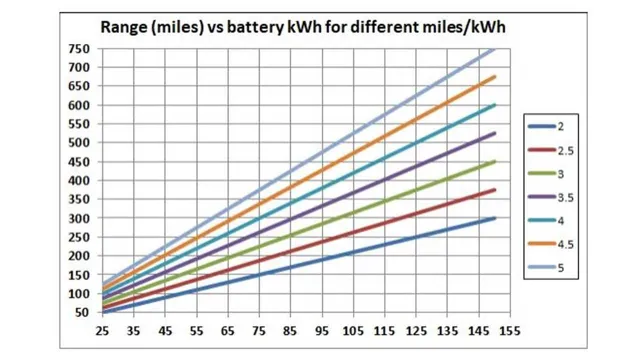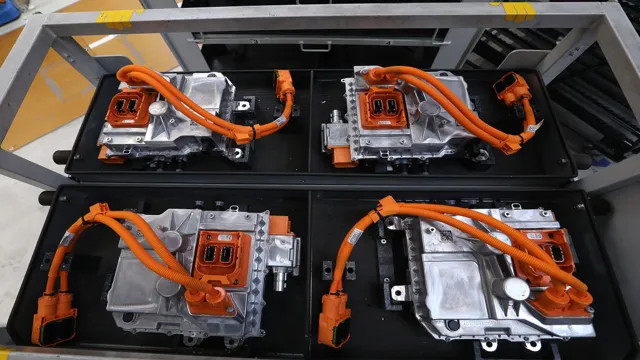Revolutionizing India’s EV Market: How Much does Lithium Ion Battery Cost for Electric Cars?
Electric cars are becoming more popular every year, and the trend seems to be here to stay. As people become more concerned with their impact on the environment, they are looking for ways to reduce their carbon footprint, including by driving electric cars. One of the concerns surrounding electric cars is the cost of their batteries.
In India, electric car battery cost is a topic of particular interest, especially since the country has set ambitious targets for the production and sales of electric vehicles. So, how much do electric car batteries cost in India, and is it an affordable option for the average consumer? Let’s explore this topic further.
Overview of Lithium Ion Technology
When it comes to electric cars in India, the cost of a lithium-ion battery is a significant factor. Lithium-ion batteries are the most commonly used type of battery in electric cars due to their high energy density and long lifespan. The cost of a lithium-ion battery for an electric car depends on various factors such as the size, capacity, and manufacturer of the battery.
In recent years, there has been a significant decline in the cost of lithium-ion batteries, making them more affordable for consumers. With advancements in battery technology, we can expect to see further reductions in the cost of lithium-ion batteries for electric cars in the future. This will not only make electric cars more accessible to the masses but will also contribute towards a greener and cleaner environment.
Comparison with Traditional Batteries
Lithium ion technology has revolutionized the battery industry by providing a more efficient and sustainable alternative to traditional batteries. One of the main advantages of lithium ion batteries is their high energy density, which means they can store more energy in a smaller space. Additionally, they have a longer lifespan and can be recharged multiple times without significantly impacting their performance.
This is in stark contrast to traditional batteries, which rely on chemical reactions that produce waste and can require frequent replacements. While lithium ion batteries may be initially more expensive, their overall cost is lower due to their longer lifespan and reduced need for replacements. Furthermore, the use of lithium ion batteries has a positive impact on the environment, as they produce less waste and can be recycled.
Overall, the adoption of lithium ion technology in batteries has revolutionized the industry and provided a more sustainable and efficient alternative to traditional batteries.
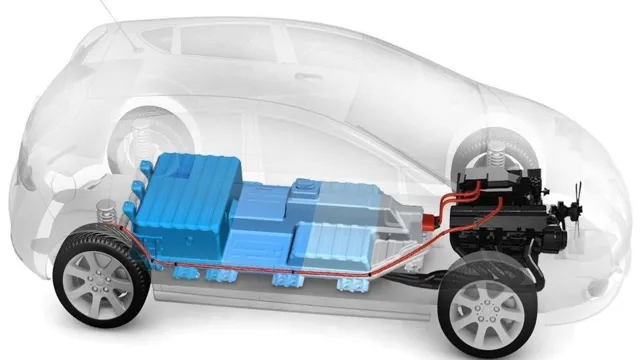
Factors Affecting Cost of Lithium Ion Batteries in India
Lithium Ion Batteries in India Lithium Ion batteries are one of the most popular types of rechargeable batteries, known for their high energy density and long life. These batteries have become ubiquitous in our daily lives, powering everything from smartphones to electric cars. Lithium Ion batteries are made up of three key components: an anode, cathode, and electrolyte.
The anode and cathode are made up of various materials, including lithium cobalt oxide, lithium manganese oxide, and lithium iron phosphate. The electrolyte is usually a lithium salt dissolved in an organic solvent. In India, the demand for lithium ion batteries is growing rapidly, largely driven by the country’s push towards electric mobility.
However, the cost of these batteries remains relatively high, especially when compared to lead-acid batteries, which are still widely used in India. There are several factors that contribute to the cost of lithium ion batteries in India, including raw material prices, manufacturing costs, and government policies. Despite these challenges, many companies are investing heavily in this technology in anticipation of future growth in the Indian market.
Current Lithium Ion Battery Prices in India
Electric vehicles are becoming more popular in India, and with this growing trend, the demand for lithium-ion batteries has also increased substantially. The cost of a lithium-ion battery for an electric car in India can vary depending on a few factors such as the type of battery, its capacity, and the brand. On average, a lithium-ion battery for an electric car in India can cost anywhere between 2 to 4 lakhs.
However, with the recent advancements in technology and the increase in production, we can expect the prices of lithium-ion batteries to drop in the future. As more and more manufacturers focus on producing electric cars, the demand for lithium-ion batteries will increase, leading to economies of scale, which in turn will reduce the prices. It is an exciting time for the electric vehicle industry and the battery manufacturing market, and we can be hopeful for more affordable and efficient lithium-ion batteries in the future.
Average Cost Per Kilowatt Hour
As we move towards a cleaner and more sustainable future, lithium-ion batteries have emerged as a popular choice for energy storage. But what does it cost to use these batteries in India? Well, on average, the cost per kilowatt-hour (kWh) of a lithium-ion battery in India is around Rs. 5-
This means that if you have a battery with a capacity of 10kWh, it would cost you around Rs. 50-60 per hour of use. Of course, these prices can vary depending on the brand, capacity, and other factors.
However, we can see that lithium-ion batteries are becoming increasingly competitive in terms of cost, making them a viable option for households and businesses alike. Plus, with their long lifespan and low maintenance requirements, they offer a cost-effective and sustainable solution for energy storage needs.
Price Comparison among Major Brands
Lithium Ion Battery Prices in India There is a wide range of lithium-ion batteries available in India’s market, with varying prices. The prices mostly depend on the brand and capacity of the battery. For instance, the popular brand, Exide, offers a 12V 7AH battery for about INR 1,330, whereas Amaron offers a 12V 7AH battery for roughly INR 1,87
Other brands like Luminous and Okaya also have comparable pricing for batteries with similar specifications. However, there are smaller brands that offer batteries at lower prices, but their quality may not be up to the mark. When it comes to choosing the right lithium-ion battery, it is best to consider the product’s quality and warranty besides its price.
It is also important to keep in mind that lithium-ion batteries have a longer lifespan than other types, which means that investing in a good-quality battery will save money in the long run. In conclusion, researching different brands and their prices before making a purchase can ensure that you get the best lithium-ion battery for your money.
Cost of Operating an Electric Car in India
When it comes to the cost of operating an electric car in India, the price of a Lithium ion battery is a crucial factor to consider. Currently, the cost of Lithium ion batteries in India ranges from Rs. 700 to Rs.
1,100 per kilowatt-hour (kWh). However, it’s worth noting that these prices have been decreasing gradually over the past few years and are expected to continue to fall in the near future. The reduction in battery prices can be attributed to advancements in technology, economies of scale, and favorable government policies.
Lower battery prices translate to lower overall costs for electric vehicles, making them more accessible to a wider audience in India. Additionally, the battery technology makes electric cars not only cheaper but also more efficient compared to combustion engine vehicles. As India makes a move towards a sustainable future, the adoption of electric vehicles appears to be a promising solution, and the decreasing cost of Lithium ion batteries is a step in the right direction.
Future of Lithium Ion Battery Cost in India
The cost of lithium ion batteries for electric cars is a major consideration for consumers in India. Currently, the cost of these batteries is on the higher side, which is one of the main reasons why electric cars are not as prevalent in India as they are in other countries. However, there is hope for the future.
With more companies investing in research and development of lithium ion batteries, improvements in technology are likely to lead to reduced costs. Additionally, the Indian government has announced plans to invest heavily in battery manufacturing in the country, which is expected to drive down costs even further. This is great news for those interested in purchasing electric cars in India, as it will make them much more affordable and accessible to the general public.
Overall, the future looks bright for lithium ion battery costs in India, and we can expect to see continued progress in this area in the years to come.
Expected Trends in Battery Pricing
The cost of lithium ion batteries has been decreasing steadily in recent years. India, with its growing demand for renewable energy and electric vehicles, is expected to see a sharp decline in battery prices in the coming years. The Indian government’s push for domestic manufacturing of lithium ion batteries will likely drive prices down even further.
With new developments in battery technology, such as solid state batteries, battery costs are expected to continue to drop, making them more accessible to a wider range of consumers. As battery prices fall and their energy density increases, it will lead to broader adoption of electric vehicles and greater use of renewable energy sources. The future of lithium ion battery cost in India is looking bright, and it is an exciting time for renewable energy and electric vehicles in the country.
Market Demand and Government Incentives
India’s rapidly growing market demand for lithium-ion batteries has led to an increase in government incentives to promote the industry. India has set a target of achieving 30% electric vehicle (EV) adoption by 2030, which has resulted in the need for affordable and accessible battery technology. The Indian government has launched multiple initiatives, such as the Faster Adoption and Manufacturing of Hybrid and Electric Vehicles (FAME) program, to support the domestic manufacturing of lithium-ion batteries.
These incentives have attracted several international and domestic players, including Tesla and Reliance Industries, to invest in the Indian EV market. As the demand for lithium-ion batteries in India continues to grow, it is expected that the cost of producing these batteries will decrease, making EVs more accessible to the masses. With the right government policies, India could become a key player in the global EV market, leading to a sustainable and eco-friendly automotive future.
Conclusion
In conclusion, when it comes to the cost of lithium ion batteries for electric cars in India, it’s important to remember that while it may seem high initially, the long-term benefits far outweigh the initial investment. These batteries are not only environmentally friendly, but they ultimately save money on fuel costs in the long run. So, while the initial cost may give your wallet a bit of a shock, choosing an electric car with a lithium ion battery will ultimately help create a brighter and cleaner future for us all.
“
FAQs
What is the current cost of lithium-ion batteries for electric cars in India?
The cost of lithium-ion batteries for electric cars in India varies depending on the brand, model and capacity. As of 2021, the average cost of a lithium-ion battery for an electric car is around INR 8-10 lakhs.
How long does a lithium-ion battery for an electric car last in India?
The lifespan of a lithium-ion battery for an electric car in India depends on various factors such as usage pattern, charging habits, maintenance, and climate, among others. Typically, lithium-ion batteries for electric cars last for around 8-10 years or 1,00,000-1,50,000 km, whichever is earlier.
Are there any subsidies or incentives available for buying an electric car with a lithium-ion battery in India?
Yes, the Indian government provides various incentives and subsidies for the purchase of electric vehicles with lithium-ion batteries. These include a FAME India subsidy of up to INR 1.5 lakhs for electric four-wheelers, and exemption from road tax and registration fees in some states.
What are the disadvantages of using lithium-ion batteries for electric cars in India?
Lithium-ion batteries for electric cars in India have some disadvantages such as high cost, limited availability, potential safety hazards, and concerns over their environmental impact. Additionally, the charging infrastructure for electric cars in India is still developing, which can make it challenging to find charging stations on long drives.
